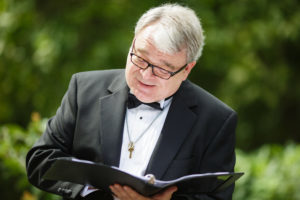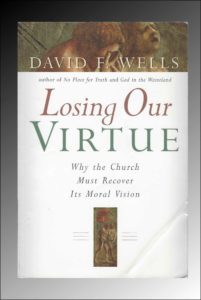Stephen W. Hiemstra's Blog, page 196
November 25, 2018
Thanksgiving Prayer 2018
 By Stephen W. Hiemstra
By Stephen W. Hiemstra
Heavenly Father,
All praise and honor be to you
Father of all Creation
for you have created us in your image,
an image that we can spend a lifetime growing into.
We confess that we are
unworthy of being your children
unwilling to give up our favorite sins and
unable to approach you, but for the blood of Jesus.
Yet, we thank you
for coming to us in spite of our broken and polluted state,
for granting us many talents and gifts, and
for making our salvation possible.
In the power of your Holy Spirit,
forgive our division and hostility to one another,
cleanse and unite our land, and
draw us closer to you day by day.
In Jesus’ precious name, Amen.
Thanksgiving Prayer 2018
Also see:
Books, Films, and Ministry
Other ways to engage online:
Author site: http://www.StephenWHiemstra.net, Publisher site: http://www.T2Pneuma.com.
Newsletter:http://bit.ly/Give_Thanks_2018
The post Thanksgiving Prayer 2018 appeared first on T2Pneuma.net.
November 23, 2018
Isness

“The earth was without form and void, and
darkness was over the face of the deep.
And the Spirit of God was hovering
over the face of the waters.” (Gen. 1:2 ESV)
By Stephen W. Hiemstra
How do we know that we exist?
Pre-Existence
My memoir, Called Along the Way, begins by recounting a childhood dream:
“As a child, a dream returned to me over and over where I felt suspended, neither awake or asleep, but paralyzed as if lost in time and place. Everything was fuzzy: neither light nor dark, hot nor cold, silent nor voiced. My limbs had a tingly feeling, like an arm that had fallen asleep or a leg that refused to support your weight. To describe it as a dream suggests that I might wake up, but this dream lingered refusing me the opportunity to stir, as if I faced a decision. Yet, what decision?”
Hayaski (2016) describes such childhood dreams as memories from the womb.
Glimpses from the Edge
The idea that we exist implies a change in our state of being and some awareness of it. When I work out, some mornings I run through my routine doing mat work with little thought about it, requiring a bit more effort on some days than others. Other days the same routine becomes impossible, not for lack of strength but because my mind is distracted—it is as if I were watching a video of my body and lost all connection to it.
At one point, I reflected on my frequent experience of depression on Saturdays. Why was Saturday evening frequently the most difficult period during the week? Then, it occurred to me that after a hard week of work I almost always found myself physically exhausted on Saturday. I was not depressed; I was tired.
Descartes famous dictum—Cognito ergo sum (I think therefore I am) could not be true—because my awareness of existence does not depend entirely on my physical or cognitive state.
Identity Formation
The meta narrative of scripture offers an interesting interpretation of who we are. We are created in the image of God. Almost immediately thereafter, we sin, breaking the only commandment of God—do not eat of the tree of the knowledge of good and evil. The rest of scripture is the story of our reconciliation with God.
This brief sketch, often repeated, is a coming of age story. A coming of age story, like the Parable of the Prodigal Son, describes creation, the need to establish an identity independent of our parents, and, then, a lifelong desire to reunite with them. The Prodigal Son is ironically a narrative about becoming an adult.
The older son in Luke 15 provides insight into the postmodern dilemma. The older brother never established an identity independent of his father and, as such, became a biblical example of co-dependency. He serves his father out of fear and resents both his younger brother and his father. He never attains true maturity as an adult and never learns to love his father. The older brother’s failure to launch leaves him immature, bitter, and unable to function as an adult.
Existence as a Continuum
Existence exists in a continuum from physical being to fully formed adult. Our parents are the immediate instrument of our creation and maturity by God. Alive or dead, awake or sleep, young or old, we are created beings, but our awareness of existence comes through relationship. This awareness starts with intimacy, then grows through tension and re-establishment of intimacy in independence.
For the Christian, in relationship existence has a qualitative aspect that defines who we are and forms the foundation for all that we do. Being created in the image of a sovereign God means that we have almost limitless room for growth into that image. Because God is good, our growth into the image has an inherently ethical trajectory. Because relationships are fragile, the need for the mentoring of the Holy Spirit through prayer, scripture, and the church is intensive and ongoing.
This is the foundation of Christian ethics.
References
Hayasaki, Erika. 2016. “Traces of Times Lost: How childhood memories shape us, even after we’ve forgotten them.” The Atlantic. November 29.
Hiemstra, Stephen W. 2017. Called Along the Way: A Spiritual Memoir. Centreville: T2Pneuma Publishers LLC.
Isness
Also see:
Preface to Living in Christ
A Roadmap of Simple Faith
Christian Spirituality
Looking Back
Other ways to engage online:
Author site: http://www.StephenWHiemstra.net, Publisher site: http://www.T2Pneuma.com.
Newsletter:http://bit.ly/Give_Thanks_2018
The post Isness appeared first on T2Pneuma.net.
November 22, 2018
Thanksgiving Praise from Psalm 103, New Living Translation
 Let all that I am praise the LORD; with my whole heart, I will praise his holy name. Let all that I am praise the LORD; may I never forget the good things he does for me. He forgives all my sins and heals all my diseases. He redeems me from death and crowns me with love and tender mercies. He fills my life with good things. My youth is renewed like the eagle’s!
Let all that I am praise the LORD; with my whole heart, I will praise his holy name. Let all that I am praise the LORD; may I never forget the good things he does for me. He forgives all my sins and heals all my diseases. He redeems me from death and crowns me with love and tender mercies. He fills my life with good things. My youth is renewed like the eagle’s!
The LORD gives righteousness and justice to all who are treated unfairly. He revealed his character to Moses and his deeds to the people of Israel. The LORD is compassionate and merciful, slow to get angry and filled with unfailing love. He will not constantly accuse us, nor remain angry forever. He does not punish us for all our sins; he does not deal harshly with us, as we deserve. For his unfailing love toward those who fear him is as great as the height of the heavens above the earth. He has removed our sins as far from us as the east is from the west.
The LORD is like a father to his children, tender and compassionate to those who fear him. For he knows how weak we are; he remembers we are only dust. Our days on earth are like grass; like wildflowers, we bloom and die. The wind blows, and we are gone– as though we had never been here. But the love of the LORD remains forever with those who fear him. His salvation extends to the children’s children of those who are faithful to his covenant, of those who obey his commandments!
The LORD has made the heavens his throne; from there he rules over everything. Praise the LORD, you angels, you mighty ones who carry out his plans, listening for each of his commands. Yes, praise the LORD, you armies of angels who serve him and do his will! Praise the LORD, everything he has created, everything in all his kingdom.
Let all that I am praise the LORD.
Thanksgiving Praise from Psalm 103, New Living Translation
The post Thanksgiving Praise from Psalm 103, New Living Translation appeared first on T2Pneuma.net.
November 20, 2018
RSL Surveys and Argues Ethics, Part 1
 Russ Shafer-Landau. 2018. The Fundamentals of Ethics. New York: Oxford University Press.
Russ Shafer-Landau. 2018. The Fundamentals of Ethics. New York: Oxford University Press.
Review by Stephen W. Hiemstra
How things get done has always been interesting to me. As a kid, when we traveled and spotted an interesting manufacturing plant along the highway, my dad would stop and we would inquire as to whether they offered plant tours. During my dissertation work I must have visited a dozen or more meat packing plants from Detroit to. Most people don’t know it, but economics (my first career) is a field closely related to ethics, its cousin in the philosophy department.
Introduction
In his book, The Fundamentals of Ethics, Russ Shafer-Landau (hereafter RSL) writes:
“In the pages to come, I present and evaluate a lot of arguments. These are the ones at the heart of morality, the ones that try to offer answers to the deepest questions of ethics. As we will see, no fundamental theory—about the good life, our moral duties, or the status of morality—has earned anything like unanimous support among philosophers.”(17-18)
While this might seem like the failure of philosophy, knowing the basic arguments and counterarguments is extremely useful. Think about how zoologists classify animals allows the zoologist to recognize species and subspecies almost immediately. In the same way, knowing the key questions in philosophy and the arguments pro and con for those questions allows one to quickly survey an entire field of inquiry because the same questions and arguments have floated around since antiquity, albeit in different contexts.
Background
RSL teaches in the Department of Philosophy at the University of Wisconsin in Madison. He is a graduate of Brown University and received his doctorate at the University of Arizona. He is the founder and editor of the periodical Oxford Studies in Metaethics and the author of numerous books.
Organization
RSL writes this textbook in twenty-one chapters divided into three parts, preceded by a preface and introduction and followed by references, suggestions for further reading, glossary, and index. The chapters are:
“Introduction
Part One: The Good Life
Hedonism: Its Powerful Appeal
Is Happiness All that Matters?
Getting What You Want
Problems for the Desire Theory
Part Two: Normative Ethics: Doing the Right Thing
Morality and Religion
Natural Law
Psychological Egoism
Ethical Egoism
Consequentialism: Its Nature
Consequentialism: Its Difficulties
The Kantian Perspective: Fairness and Justice
The Kantian Perspective: Autonomy and Respect
The Social Contract Tradition: The Theory and Its Attractions
The Social Contract Tradition: Problems and Prospects
Ethical Pluralism and Absolute Moral Rules
Ethical Pluralism: Prima Facie Duties and Ethical Particularism
Virtue Ethics
Feminist Ethics
Part Three: Metaethics: The Status of Morality
Ethical Realism
Moral Nihilism
Eleven Arguments Against Moral Objectivity”(vii-xiv)
Part one focuses on what makes a good life or what RSL refers to as value theory. In part two he talks about normative ethics, who is in and out of our moral universe and the roles of virtue, self-interest, and justice. In part three, he discusses metaethics and the sources of moral authority (2). Clearly, RSL covers a lot of material in 342 pages plus front and back matter.
Beginnings
While skeptics argue that moral thinking is arbitrary, RSL lays out a list of parameters that guide any moral quest. These are not meant to be exhaustive:
“Neither the law nor tradition is immune from moral criticism…
Everyone is morally fallible…
Friendship is valuable…
We are not obligated to do the impossible…
Children bear less moral responsibility than adults…
Justices is a very important moral good…
Deliberately hurting other people requires justification…
Equals ought to be treated equally…
Self-interest isn’t the only ethical consideration…
Agony is bad…
Might doesn’t make right…
Free and informed requests prevent rights violations.”(6-7)
Poor beginnings can also be articulated. He writes: “A morality that celebrates genocide, torture, treachery, sadism, hostility, and slavery is…either no morality at all or a deeply failed one.”(7) Because we can all name cultures that embrace such practices, clearly not all cultures are created equal.
What is morality? RSL sees no widely agreed upon definition. (8) What is moral reasoning? RSL sees a set of reasons (premises) and a conclusion that they support. (9) The validity of an argument depends on how well the premises of an argument support its conclusion. (12)
Assessment
In part one of this review, I have outlined the basic arguments that RSL present. In parts two and three, I will examine some of his more important arguments.
In this textbook,The Fundamentals of Ethics, Russ Shafer-Landau offers a taxonomy of ethical arguments covering a wide range of ethical philosophies. His writing is clear, concise, and interesting in the topics used as examples.
Footnotes
http://philosophy.wisc.edu/people.
https://en.wikipedia.org/wiki/Russ_Shafer-Landau. https://www.amazon.com/Russ-Shafer-La....
RSL Surveys and Argues Ethics, Part 1
Also see:
Books, Films, and Ministry
Other ways to engage online:
Author site: http://www.StephenWHiemstra.net, Publisher site: http://www.T2Pneuma.com.
Newsletter:http://bit.ly/Give_Thanks_2018
The post RSL Surveys and Argues Ethics, Part 1 appeared first on T2Pneuma.net.
November 19, 2018
Leadership, Monday Monologues, November 19, 2018 (podcast)
 Stephen W Hiemstra, 2018
Stephen W Hiemstra, 2018By Stephen W. Hiemstra
In today’s podcast, I prayer for our leaders and talk about Leadership.
After listening, please click here to take a brief listener survey (10 questions).
To listen, click on the link below.
https://t2pneuma.net/wp-content/uploads/2018/11/Monday_monologue_leadership_11192018.mp3
Hear the words; Walk the steps; Experience the joy!
Leadership, Monday Monologues, November 19, 2018 (podcast)
Also see:
Monday Monologue On March 26, 2018
Other ways to engage online:
Author site: http://www.StephenWHiemstra.net, Publisher site: http://www.T2Pneuma.com.
Newsletter:http://bit.ly/Give_Thanks_2018
The post Leadership, Monday Monologues, November 19, 2018 (podcast) appeared first on T2Pneuma.net.
November 18, 2018
Prayer for Leaders
 By Stephen W. Hiemstra
By Stephen W. Hiemstra
Almighty God,
All praise and honor are yours
for you have led us
out of the wilderness of life and
into the Promised Land.
Your salvation begins here and now, and extends into eternity.
We have unfortunately now often accepted your leadership.
We have strayed from the path of life into the jungle of our own desires and
sought refuge in a thousand idols.
Forgive our militant stubbornness, murderous pride, and unlimited insolence.
Thank you for your patience, unrelenting guidance, and your many spiritual gifts.
By the power of your Holy Spirit,
save us from ourselves–our thin skin, laziness, and pride–and
raise up Godly leaders in our land.
who will turn to you in their pain and follow your lead.
Teach us humility before we destroy ourselves.
In Jesus’ precious name, Amen
Prayer for Leaders
Also see:
Books, Films, and Ministry
Other ways to engage online:
Author site: http://www.StephenWHiemstra.net, Publisher site: http://www.T2Pneuma.com.
Newsletter:http://bit.ly/Give_Thanks_2018
The post Prayer for Leaders appeared first on T2Pneuma.net.
November 16, 2018
Leadership
 “Then he poured water into a basin and
“Then he poured water into a basin and
began to wash the disciples’ feet and
to wipe them with the towel
that was wrapped around him.”
(John 13:5)
By Stephen W. Hiemstra
Leadership creates what previously did not exist and in leading we most nearly reflect the image of a sovereign God in which we were created. In its purest form, Christian leadership displays the kingly, priestly, and prophetic characteristics of the Messiah, revealing its its origin in the godhead and formation in the community of faith. It is sovereign in the sense of being free to create; spiritual in the sense of embodying unseen power; and Christlike in living into a sacrificial character. As such, Christian leadership never strays far from the cross; even demonic leadership never strays far from advancing the will of God.
What is Leadership?
In scripture, we see many images of leadership, but no clear definition. One definition of Christian leadership is:
“Good leaders are fervent disciples of Jesus Christ, gifted by the Holy Spirit, with a passion to bring glory to God. They use their gifts of leadership by taking initiative to focus, harmonize, and enhance the gifts of others for the sake of developing people and cultivating the kingdom of God.” (Plueddemann 2009, 15)
Stepping back from the tendency to spiritualize leadership or to use the word, leader, as synonym for pastor, it is helpful to identify the unique role of leaders in decisions.
Role of Leaders
The scientific method is a familiar decision tool often employed in science and management. The method consists of these steps:
1.Felt need
2.Problem definition
3.Observation
4.Analysis
5.Decision
6.Action
7.Responsibility learning.1
In the problem definition step, an hypothesis is formed out of a felt need. Observations about this hypothesis are collected in the second step. In the third step, these observations are analyzed in view of other discoveries. In the final steps, a decides is made whether to accept or reject the hypothesis, take action, and bear responsibility for that action. Here the inactive voice is used intensionally in this description to avoid presuming who undertakes each step.
Three points in the scientific method require executive action: defining the problem, making a decision, and bearing responsibility for the decision. If the problem being addressed is inconsequential, then these three steps and all the others can be delegated to professional managers. But, if the problem being addressed threatens the existence of the organization or requires the firm to re-imagine itself,2 then only executive leadership can undertake these three steps because big risks and substantial resources are required for implementation.
Spiritual Leadership
Spiritual leadership is particularly important in taking felt needs and turning them into problem definitions because this is where organizational cultures are defined and defended. Even in the daily tasks of individual staff members, this need for spiritual leadership is a key to organizational success because organizations that promote active learning at all levels of the organization adapt more rapidly to a changing environment.
Beyond the usual role of leaders in organizations, the spiritual component of leadership arises because leadership embodies the multiplicative effect of joint action. An organization is more than the sum of its parts. When leaders humble themselves before the Triune God, even just privately, a tone of humility is set for the entire organization and they make room for God’s sovereign will to act within the organization.
Timing is Crucial
A popular business communication book recently broke conversation about a problem into four stages: presenting facts, telling a story, feeling, and acting. These authors observe that once emotions take over a discussion, actions get locked in. The key point in influencing an organizational decision process therefore arise as people begin to tell stories about presumed facts.
The authors describe these discussion as “crucial conversations” because stakes are high, opinions vary, and emotions run strong. Responses to these white-knock conversations include: avoidance, handled badly, and handled well. High-performance professionals earn their pay by telling supervisors discretely what they do not care to hear when silence is the more typical response. Organizations where employees are able and willing to engage in constructive conversations about sensitive matters respond quicker to crises, have fewer on-the-job injuries, save money, and reduce workplace bullying (Patterson and others 2012, 3-13).
Leadership Challenges
In his book, In the Name of Jesus, Henri Nouwen writes laconically about Christian leadership focusing on the three temptations of Christ in the desert before he starts his ministry (Matthew 4:1-11) . These temptations were: be relevant (turn stones into bread), be popular (throw yourself off the temple), and be powerful (lead rather than to be led).
Be Relevant
Jesus’ first temptation was to be relevant—turn stones into bread (Nouwen 2002, 30). Writing about his experience at L’Arche—a live-in community for special needs patients, Nouwen notes his new friends had no interest in his accomplishments or his network of distinguished colleagues. He writes:
“This experience was and, in many ways, is still the most important experience of my new life, because it forced me to rediscover my true identity. These broken, wounded, and completely unpretentious people forced me to let go of my relevant self—the self that can do things, show things, prove things, build things—and forced me to reclaim that unadorned self in which I am completely vulnerable, open to receive and give love regardless of any accomplishments.” (Nouwen 2002, 28)
If you strip away the degrees, titles, and robes, who are you really?
Be Popular
Jesus’ second temptation was to do something spectacular to draw attention to himself (Nouwen 2002, 53). The Gospel of Matthew records it this way:
“If you are the Son of God, throw yourself down, for it is written, “‘He will command his angels concerning you,’ and “‘On their hands they will bear you up, lest you strike your foot against a stone.” (Matt 4:6)
Jesus responds, saying: “You shall not put the Lord your God to the test.” (Matt 4:7). For Nouwen, the temptation to engage in heroic leadership is blunted by ministering in teams and, as a member of the L’Arche community, the need to bring along a companion from the community when he was asked to speak (Nouwen 2002, 58-59).
Be Powerful
The third temptation of Jesus was to be powerful (Nouwen 2002, 75). He observes: “It seems easier to be God than to love God, easier to control people than to love people, easier to own life than to love life.” (Nouwen 2002, 78) After re-commissioning Peter, Jesus prophesies his death:
“Truly, truly, I say to you, when you were young, you used to dress yourself and walk wherever you wanted, but when you are old, you will stretch out your hands, and another will dress you and carry you where you do not want to go.” (John 21:18)
Whether we like it or not as Christian leaders, we frequently find ourselves led. Nouwen (2002, 88) sees theological reflection as the primary antidote to the temptation to be powerful.
Footnotes
1 In class, unlike his book, Johnson (1986, 15) add a felt need as the first step following Dewey (1997).
2 A key insight in Heifetz and Linsky’s (2002, 14 and 18) work is to distinguish technical from adaptive challenges. In a technical change, authorities apply current know-how to solve a problem while in an adaptive change people with the problem must learn new ways to solve the problem. A technical change typically requires nothing more than additional budget while an adaptive change requires an entirely new approach.
References
Dewey, John. 1997. How We Think (Orig Pub 1910). Mineola, NY: Dover Publications.
Heifetz, Ronald A. and Marty Linsky. 2002. Leadership on the Line: Staying Alive through the Dangers of Leading. Boston: Harvard Business School Press.
Johnson, Glenn L. 1986. Research Methodology for Economists: Philosophy and Practice. New York: MacMillan Publishing Company.
Nouwen, Henri J.M. 2002. In the Name of Jesus: Reflections on Christian Leadership. New York: Crossroad Publishing Company.
Patterson, Kerry, Joseph Grenny, Ron McMillan, and Al Switzler. 2012. Crucial Conversations: Tools for Talking When Stakes Are High. New York: McGraw-Hill.
Plueddemann, James E. 2009. Leading Across Cultures: Effective Ministry and Mission in the Global Church. Downers Grove: IVP Academic.
Leadership
Also see:
Preface to Living in Christ
A Roadmap of Simple Faith
Christian Spirituality
Looking Back
Other ways to engage online:
Author site: http://www.StephenWHiemstra.net, Publisher site: http://www.T2Pneuma.com.
Newsletter: http://bit.ly/2018_Character
The post Leadership appeared first on T2Pneuma.net.
November 13, 2018
Wells Exercises Moral Vision, Part 2
 David Wells. 1998. Losing Out Virtue: Why the Church Must Recover Its Moral Vision. Grand Rapids: Eerdmans. (Goto Part 1)
David Wells. 1998. Losing Out Virtue: Why the Church Must Recover Its Moral Vision. Grand Rapids: Eerdmans. (Goto Part 1)
Review by Stephen W. Hiemstra
Wall Street has many proverbs that describe rookie investor mistakes. Famous last words of a rookie, for example, might be: “this time is different.” Or, for the rookie day trader: “trees don’t grow to the sky.” Or, one that might have saved a few tech fortunes that I know in the mid-1990s:“don’t confuse luck with smarts.” Each of these statements of Wall Street wisdom could easily apply also to the subject of human morality.
In part one of this review of David Wells’ book, Losing Our Virtue, I focused on summarizing Wells’ basic argument. In part two I examine his arguments in more depth.
Classical and Postmodern Spirituality
Addressing primarily an evangelical audience, Wells identifies two distinct contemporary spiritualities that both claim an evangelical heritage (belief in the Trinity, divinity of Christ, the resurrection, inspiration of scripture, and other core doctrines). In that sense, neither is generationally defined, but they differ in their response to postmodernism. In particular, in classical spiritualty, what is moral is central and in postmodern spirituality, it is not (34). The postmodern churches are counterculture being more therapeutic, more individualistic, and more anti-establishment (32).
Wells sees an additional distinction in the way that these two spiritualities experience moral questions. The classical church experience moral through guilt while the postmodern church experiences it through shame. (34) Here Wells sees of this shame:
“[There is] very little of which people are ashamed should they get caught or be exposed. It is, rather, the same of being naked within one’s self. It is shame experienced as inner emptiness, deprivation, loss, and disorientation. It is shame that is more psychological in nature than moral.”(35)
Citing Lewis Smedes, Wells observes that we “feel guilty for what we do. We feel shame for what we are.”(130)
Nothing here in the postmodern spirituality suggests being stricken by the moral presence of God (41), as we read:
“O Lord, hear my voice! Let your ears be attentive to the voice of my pleas for mercy! If you, O LORD, should mark iniquities, O Lord, who could stand?”(Ps 130:2-3)
Where the classical spirituality focuses on God’s truth, the postmodern spirituality centers on God’s power; where the classical spirituality experiences God’s present through believing in his word and trusting in Christ’s work, the postmodern experiences God’s presence through the emotions and bodily actions—hands raised, swaying to the music, and release of pent up emotions (43). The postmodern piety has a mystical nature where God’s transcendent holiness cannot be experienced and parables, like the prodigal son, that presume the truth of sin seem almost inconceivable (45-49).
Character Versus Personality
Wells makes an important distinction between character, which arises from our inner life and virtues, and personality, which focuses on outward appearances. He writes:
“Today, we cultivate personality (a word almost unknown before the twentieth century) far more than we do character, and this is simply the concomitant to the way in which values have come to replace the older sense of virtue…Character is good or bad, while personality is attractive, forceful, or magnetic.”(96-97)
In some sense, the “hollowing out of the self” began with this emphasis on exterior characteristics and is exemplified by the rise of celebrities over heroes. Wells notes, citing Daniel Boorstin:
“The hero was distinguished by his achievement; the celebrity by his image or trademark. The hero created himself; the celebrity is created by the media.”(100)
Neglect of the inner life is akin to devaluing our experience of God. Wells observes:
“If the narcissist classically has a shrunken, fragmentary self, our culture has similarly become hollowed out and lost its core. If the narcissist covers up the emptiness by exaggerated self-importance and fantasies of power, our culture is covering up its hollowness by fads and fashions, ceaseless consuming, and the constant excitement of fresh sexual conquest.”(108)
While someone of strong moral character has no need of “buzz,” personality addicts live for public approval. Pastors are not the ones often guilty of being people pleasers. In Washington, the joke is that most dangerous place to stand is between a particular congressional representative (or senator or president) and the television cameras.
Shame and Guilt
Wells observes that Americans are often subject to crippling shame, but we do not belong to the same kind of honor and shame society that we read about in the Bible because of our individualism. For most part, we do not feel guilty about much—people go on television and tell the most intimate details of their lives. We hold group identities so lightly that we do not feel guilty in letting them down the way ancients and non-western people might feel guilt. Wells writes:
“In a narcissistic culture, Donald Capps sums up, people ‘do not experience guilt to any significant degree’ in the sense of having failed objective moral norms, and yet, despite this fact, they still do not feel whole and happy. They are, instead, burdened by ‘a deep, chronic, and often inexplicable sense of shame. It is this, rather than guilt, that makes them feel ‘that something is seriously wrong with them.’ This sense, though, is internalized. It is psychological, not social. This is what makes us different from traditional ‘shame cultures’”(167)
This sense of shame accordingly comes across as been unworthy, unwanted, unclean, or just unlovable, and it masks the ability of many people to experience God’s grace.
Recovering our Moral Vision
Wells sees the church needing to undertake two things in recovering its moral vision. The first thing is:
“it will have to become courageous enough to say that much that is taken as normative in the postmodern world is actually sinful and it will have to exercise new ingenuity in learning how to speak about sin to a generation for whom sin has become an impossibility.”(179)
In the twenty years since Wells penned these words, little evidence can be cited to suggest that the church has taken up this first challenge. The second thing is:
“the church itself is going to have to become more authentically morally, for the greatness of the Gospel is now seen to have become quite trivial and inconsequential in its life.” (180)
Again, there is little evidence that the church has taken up this second challenge. As a general rule, the church has not staked out morally as a field that it even attempts to play on. If anything, it has run away from teaching morality which is often associated with the folk ways of the builder and boomer generations rather than a challenge facing every generation equally.
Assessment
David Wells’ Losing Our Virtuefocuses on the question of Christian morality in the postmodern period better known for its sexual obsessions and liberality. As leaders in all aspects of society, from our politicians to our academics to entertainment to the church, crash and burn in moral failures in daily news accounts, Wells’ stark assessment of postmodern morality rings ever truer. This book desires another look from today’s academics and frontline pastors.
References
Boorstin, Daniel J. 1962. The Image; or, What Happened to the American Dream. New York: Athemneum.
Capps, Donald. 1993. The Depleted Self: Sin in a Narcissistic Age. Minneapolis: Fortress Press.
Smedes, Lewis B. 1993. Shame and Grace: Healing the Shame We Don’t Deserve.New York: HarperCollins.
Wells Exercises Moral Vision, Part 2
Also see:
Books, Films, and Ministry
Other ways to engage online:
Author site: http://www.StephenWHiemstra.net, Publisher site: http://www.T2Pneuma.com.
Newsletter: http://bit.ly/2018_Character
The post Wells Exercises Moral Vision, Part 2 appeared first on T2Pneuma.net.
November 12, 2018
Community, Monday Monologues, November 12, 2018 (podcast)
 Stephen W Hiemstra, 2018
Stephen W Hiemstra, 2018By Stephen W. Hiemstra
In today’s podcast, I pray for community and talk about Community
After listening, please click here to take a brief listener survey (10 questions).
To listen, click on the link below.
https://t2pneuma.net/wp-content/uploads/2018/11/Monday_monologue_community_11122018.mp3
Hear the words; Walk the steps; Experience the joy!
Community, Monday Monologues, November 12, 2018 (podcast)
Also see:
Monday Monologue On March 26, 2018
Other ways to engage online:
Author site: http://www.StephenWHiemstra.net, Publisher site: http://www.T2Pneuma.com.
Newsletter: http://bit.ly/2018_Character
The post Community, Monday Monologues, November 12, 2018 (podcast) appeared first on T2Pneuma.net.
November 11, 2018
Prayer for Community
 By Stephen W. Hiemstra
By Stephen W. Hiemstra
Merciful Father, Beloved Son, Holy Spirit,
All praise and honor are yours
for you poured out your Holy Spirit at Pentecost
to create the church–
a pillar of faith in an faithless word,
a light in the darkness,
the aroma of your Holy Spirit in a barren land.
We confess that even as we gather
around your communion table
called out from the world and called to faith
we are broken and sinful and without merit
except for the blood of Christ.
Thank you nevertheless for your place of refuge and strength
amid the confusion of life.
Bind us together in unity;
teach us to follow your ways;
bless us that we may bless those around us (Gen 12:1-3).
In Jesus’ precious name, Amen.
Prayer for Community
Also see:
Books, Films, and Ministry
Other ways to engage online:
Author site: http://www.StephenWHiemstra.net, Publisher site: http://www.T2Pneuma.com.
Newsletter: http://bit.ly/2018_Character
The post Prayer for Community appeared first on T2Pneuma.net.



